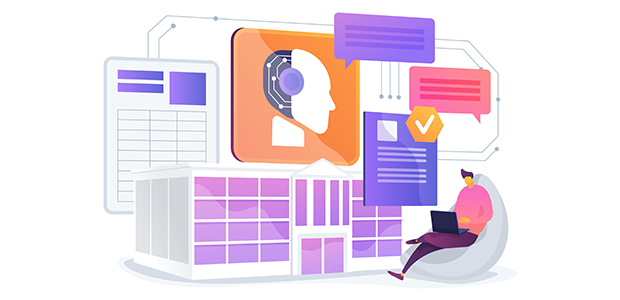
AI and the development of legislative infrastructure
As always, businesses and inventors are at the forefront of innovation and contribute to the development of technologies. However, all progressive innovations, whose popularity grows rapidly, require regulation. The true revolution in artificial intelligence (AI) is proof of this truth. Despite the great potential of AI, its rapid development also presents an important question of how we can ensure safety, ethics, and the protection of rights in this new technological reality.
We can draw a parallel with a hammer: it can drive a nail, but with improper or intentional use, it can cause harm. Therefore, AI becomes a kind of hammer that helps, but at times can also be an instrument that causes damage. Several historical cases demonstrate how uncontrolled use of new technologies can lead to serious ethical or even social problems. Thus, it is crucial to establish rules and boundaries for their application.
Against this backdrop, lawmakers in various countries have already started developing rules and regulations to set limits on the use of artificial intelligence. Given the global scale of technological changes, it is important to ensure fair and effective standards that allow not only for the development of AI but also protect people from potential threats. The European Union, for example, is developing its own AI Act, which establishes strict requirements for the use of high-risk AI systems. This allows countries to ensure proper control without halting the innovation process.
On the other hand, it is worth considering America’s AI action plan, which outlines industries where the use of artificial intelligence should be prioritised. Notably, the medical sector, finance, industry, education, and government services are highlighted. In these areas, AI can significantly improve efficiency, optimise costs, and offer new opportunities for personalised services. Therefore, for businesses, such regulations should be viewed not only as restrictions but also as opportunities.
For example, in the United Kingdom, increased funding for AI research is planned, which could mark a new era in the scientific world, where young experts in the field of AI can try themselves in the UK, receiving relevant scholarships. This creates conditions for the development of new ideas, research, and innovations, which, in turn, stimulate the national economy and technological sector.
Given these changes, businesses should not forget about progressiveness and promptly protect all their developments through intellectual property registration. This is critically important as the protection of new technologies and developments will not only safeguard the business from potential infringements of rights but will also significantly increase the value of its intellectual assets. Timely registration of patents, trademarks, or copyrights will not only help avoid possible legal disputes but will also strengthen the business’s competitive position in the market, creating additional opportunities for attracting investments.
Nevertheless, regulations are not a negative sign. They signal that technologies are becoming an important part of society and the economy, and that with proper control, they can significantly improve quality of life. The establishment of rules means that larger players – corporations, governments, and financial institutions – will enter this market, providing stability and support for the development of innovations. Along with them will come investments and new opportunities for businesses.
Moreover, regulation creates new challenges, particularly for small and medium-sized businesses, which may come under greater pressure to comply with new requirements. However, these challenges also present new opportunities to adapt to changes, grow in new realities, and find new markets and partnerships. Ultimately, well-designed and properly implemented regulatory frameworks are an essential part of the successful development of AI and an opportunity for businesses to adapt and use these technologies for the benefit of society.
Overall, progress cannot move forward without establishing essential frameworks and regulations that will help not only preserve the ethical use of technologies but also guarantee their positive impact on the global economy and every individual.
For more startup news, check out the other articles on the website, and subscribe to the magazine for free. Listen to The Cereal Entrepreneur podcast for more interviews with entrepreneurs and big-hitters in the startup ecosystem.

